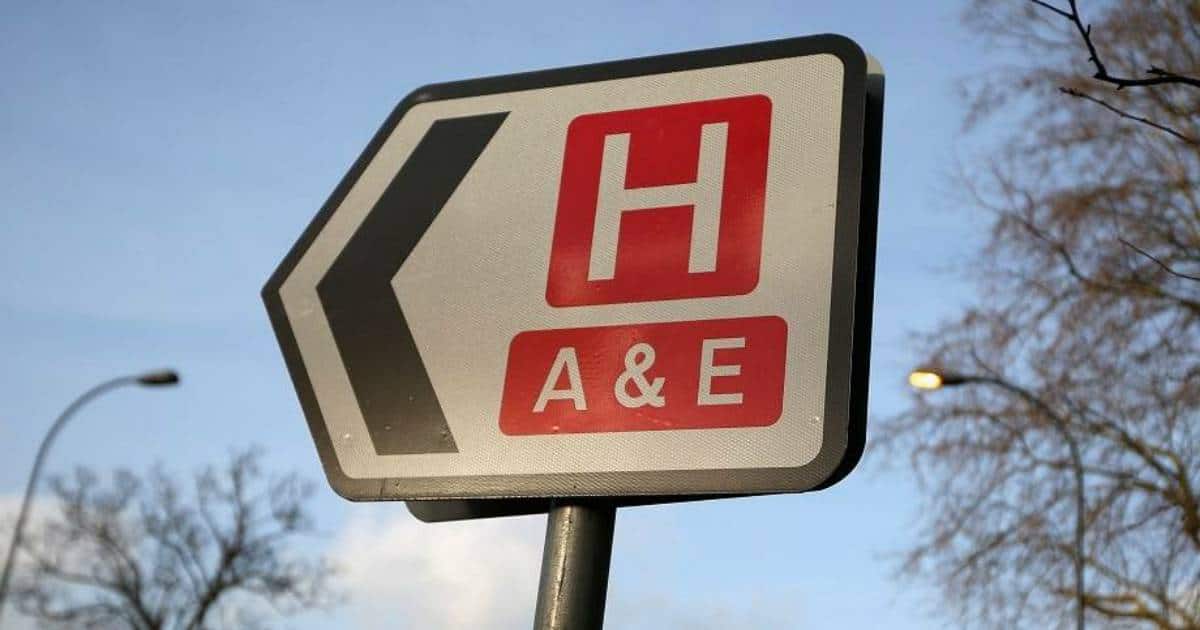Working in Emergency Medicine in the UK

It’s often difficult to assess where would be best to start off working in the NHS when you start applying for jobs, especially when you hear about how working in emergency medicine may be stressful. Many of us wish to apply exactly where we one day wish to train- and we are well within our rights to do so. The question often arises, however, what department gives you the clearest introduction to the NHS.
Now let me add a heavy disclaimer: this is an opinion I am setting forth and I will list my reasons as well as pros and cons, so take what I say with a grain of salt, but all things considered, emergency medicine is a great place to start working.
Why Emergency Medicine?
Most patients in the hospital are admitted from the emergency department. The first doctors to see, treat, and stabilize a patient are in the ED. This gives you a fantastic picture of how the NHS works.
As an emergency medicine doctor, you are allowed the opportunity to approach a patient with a fresh mind and try and dig out just what could be troubling them. It’s a great way to keep your clinical mind sharp, as there is a limited amount of time to work in, and you cannot always wait for bloods and scans to dictate your next move.
Yes, there is a lot of pressure. Yes, you will need to stay on your feet. But all things considered, the reason I believe it is a great place to start out is that even if it’s been a while since you’ve been practicing, you get the opportunity to start from scratch again. The nurses and other healthcare staff will help you if you just ask. No one will judge you for asking questions as emergency medicine cannot run without teamwork. So when you ask something, make sure and keep notes so that you remember. Keep in mind that working in emergency medicine tends to be fast paced but you should never feel overwhelmed.
Check out our extensive article on How to be a Safe Doctor to ensure that you are being the best you can be.
How does emergency medicine work?
There is a constant buzz in this department. You will be expected to have your patient out of the ward within 4 hours- or you could risk the wrath of the nurse in charge/site manager. The reason for this limit there is a continuous influx of patients into the ward, and they need to be sorted out soon- else the entire system will back up. That being said, there may be circumstances out of your hand that will lead the patient to be in the department beyond the 4 hour limit (what is known as a breach), but keep in mind you will otherwise be held accountable if you don’t have a plan ready within a patient’s 2-3 hour stay.
The emergency department is generally divided into 4 sections:
- Minors
- Majors
- Rapid assessment unit
- Resus
Minors department
Minors is essentially a waiting room filled with patients who are ill, but not so much that they’d necessarily warrant admission. You can expect to find complaints of minor scrapes and breaks, ongoing coughs, or tummy aches. There will be treatment rooms for doctors, nurse practitioners, GPs, emergency nurse practitioners (ENPs), and advanced care practitioners (ANPs), among others, to see and treat patients. Before the patient is ready to be seen, they may be triage, or have their observations, bloods, or ECG done, depending on the nature of their arrival. Sometimes a patient will not be stable enough (or ‘fit to sit’), and will need moving to majors.
Majors department
Majors is where the patients most likely needing admission arrive. There will be cubicles where you can see these patients. Their initial write up (what they’ve come in for along with any pertinent past medical history, current observations, and drug allergies) will be available to you as soon as they’ve been seen and sorted in the rapid assessment unit. Once you pick up a paper, you will need to put down your name to the patient in the system so that it’s known that someone will go see this person now. Remember that the clock of 4 hours starts the minute the patient enters the department, not the cubicle, so depending on how long it takes to get their papers ready, you may only have 3 hours within which to see, write, diagnose, treat, and potentially refer or discharge.
Rapid assessment unit
Now let’s discuss the rapid assessment unit. This is where patients waiting to be moved into a cubicle are given the once over by the nursing staff, and pertinent bloods are also taken and sent off in the meanwhile. You may be able to see some patients while they are still there and provide treatment and make a plan before they shift into a cubicle.
Resus
Resus is where all the (as they say) poorly patients go. They most often come in after your department gets a call- you’ll notice a red phone on or near the nurses’ base that every so often everyone will give a quick glance to, lest it ring and bring in a sick patient. The ambulance service has a direct line to this phone, and will inform you of the SBAR of the patient they are bringing in:

With this information (that you’ll quickly scrawl on to the provided sheet conveniently left near the phone), you’ll have the full details of how to keep the resus ready until the patient arrives. Typical patients can be anything from cardiac arrest to trauma to DKA to severe asthmatic attacks to even epileptic fits. Don’t think you’ll be running it all alone, but don’t also shy away from going into resus. A lot can be learned by simply standing back and observing if there is room to do so.
Learning Opportunities in Emergency Medicine
As mentioned before, there is a lot you can do while you are working in emergency medicine. Yes there are nurses and other staff who can do bloods, cannulations, catheterizations, etc but sometimes in order to lessen the burden of work, you may be asked to help out. That, along with the fact that consultants and other senior staff are always at hand to help you in case you have any questions or concern, will make it easier to get your FY2 competencies signed off if you’ve not already done so.
You can easily be assessed on all the points mentioned in your competencies because there is always someone on the floor who can vouch for your work. Aside from this, if you need to complete any directly observed procedures (DOPs), case-based discussions (CBDs), or mini-examinations (Mini-CEX), you find that in a week you’ll have been able to check off all of these tasks. Be certain that you mention to your supervising consultant as early as possible that you wish to get your CREST form signed off in order to show FY2 competencies. We have detailed what the requirements are as well as provided with the form link on our article covering specialty training application timelines.
A really great resource for emergency medicine is the Oxford Handbook of Emergency Medicine. Another useful book to have around if you need help understanding x-rays is Accident and Emergency Radiology: A Survival Guide.
Specialty Training in Emergency Medicine

Read more about a doctor’s training in emergency medicine in this article – Emergency Medicine Training in the UK.
Why you may not want to work in Emergency Medicine
Okay so as promised, here is the list of cons. Now just because I may say that emergency medicine isn’t for everyone, that doesn’t mean if you opt to not start in emergency medicine that you’ll be at some huge disadvantage versus everyone else. I’ve just noticed that there have been many people I know who’d initially been reluctant to join emergency medicine because of the drawbacks I’ve listed below but really learned to appreciate it afterwards:
- The hours tend to be unsocial. There may be very few shifts that you’ll be working as an A&E doctor that will start at 8 am. You may find yourself instead coming to work midday or in the late afternoon and staying until 10pm into the early hours of the next day.
- There is a lot going on at once and you need to keep track of everything that you are doing. If you have trouble organizing your tasks and completing everything you need to do, it is important to pace yourself.
- Your sleep pattern will be out of whack because of how often your daily hours may vary.
- You may not have a chance to hang out with your friends or study as much as you’d like because of the disparity of work hours and the likelihood of your feeling exhausted.
- Because of the timings, you may not always be able to home cook your meals as much as you’d like. A lot of people have also mentioned they’ve fallen prone to snacking more because of the change in hours.
- If you’re not a night owl, you may not like working into the late hours.
So why should I work in emergency medicine?
- First hand learning opportunities and a chance to get your feet wet again if it’s been a while since you’ve practiced.
- Constant consultant and senior doctor cover on the shop floor with whom you can always discuss anything you’re unsure about.
- A chance to get your competencies signed faster since there are more on-hand tasks to be completed.
- Seeing how a multi-disciplinary approach is used from a patient’s admission to their transfer/discharge in order to provide the best care.
- Even if you’ve decided to eventually go into orthopedics, or surgery, or OB/GYN, or pediatrics, you will invariably see and treat primarily ALL of these patients in emergency medicine.
- If you’re not a morning person, most shifts are later in the day 😛
From my own experience, I’ve helped in relocation of joints, stitching of wounds, taken capillary blood gases and attached urobags for babies, fascio-iliaca blocks for fracture neck of the femur, and many other tasks that have helped me to become a more well-rounded and confident doctor.
To Summarize
I don’t want to scare any of you who have chosen emergency medicine and not yet started your jobs. I also don’t want to make it sound like a bed of roses. Yes, at the end of the day, when you compare it to work in other departments, it is more stressful and hectic, but if there is one thing I want you all to takeaway from this post today is that it is also rewarding. Remember what you choose to do is at the end of the day your decision, so just make sure it is an informed one and you know and understand what you want out of your job and career. If you have any other concerns about starting your new job, don’t hesitate to check out Your First Day on the Job.
Still have questions?
Check out a day in the life of an emergency medicine consultant with this interview:
Good luck!

